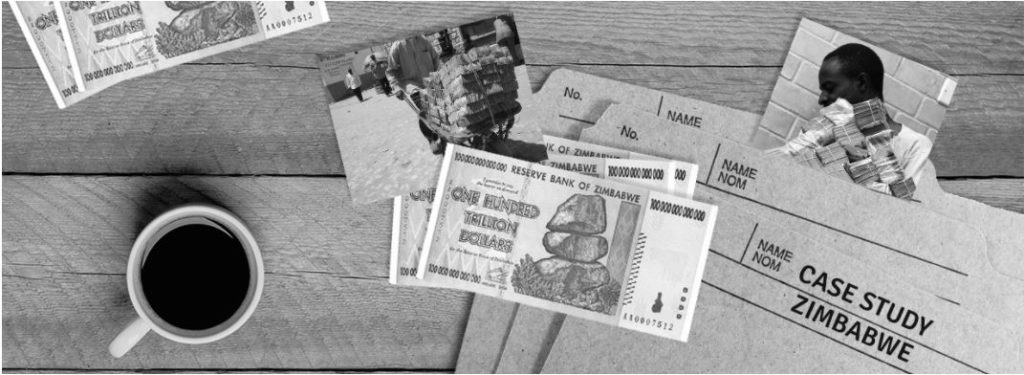Currency is a confusing subject, and wrapping your head around ideas like fiat money vs commodity money systems, currency trading, or inflation and deflation can take time. Part of the problem is that the ideas are abstract. But every now and then something happens that makes one of those ideas very tangible, and right now that is exactly what is happening in Zimbabwe.
This week Zimbabweans will switch their currency to the US Dollar because their currency experienced hyper-inflation in 2008 when it jumped 500 billion percent.
Inflation of that degree is devastating to the economy, not only because you lose your standing in trade with nations who have more stable currency, but also because of the effect it has on personal wealth.
Zimbabweans who didn’t have their money sheltered by assets lost everything when the value of their dollar was diluted billions of times over. At the height of the crisis the government even started printing trillion dollar banknotes that were only worth a few US Dollars.
Some of the numbers being reported this week are fascinating. As they switch their currency, Zimbabweans are being paid by the government’s Reserve Bank. An account with $175 quadrillion Zimbabwean Dollars will be given just five US Dollars. It is not often you have to quantify anything in quadrillions, and in case you didn’t know, quadrillions is what comes after trillions.
Inflation and deflation are heavily influenced by the government that regulates the currency, as it has the power to print money or take banknotes out of circulation. This can be done without a vote by the people and is frequently done to achieve political ends.
Bitcoin has no central authority, and the currency is capped at 21 million bitcoins. You cannot create more or get rid of them once they are found. In that sense, the currency is far less prone to manipulation or experiencing catastrophe’s like Zimbabwe’s hyper-inflation fiasco.
And if you think this issue could never effect you, think again! Dozens of countries have had their currencies collapse in the last century, including Chile, Greece, Bolivia, Germany, China, Argentina, Yugoslavia, and others.
No one should have to push a wheelbarrow full of money to the grocery store to buy a dozen eggs, but as long as we rely on centralized currencies, it is always a possibility!





